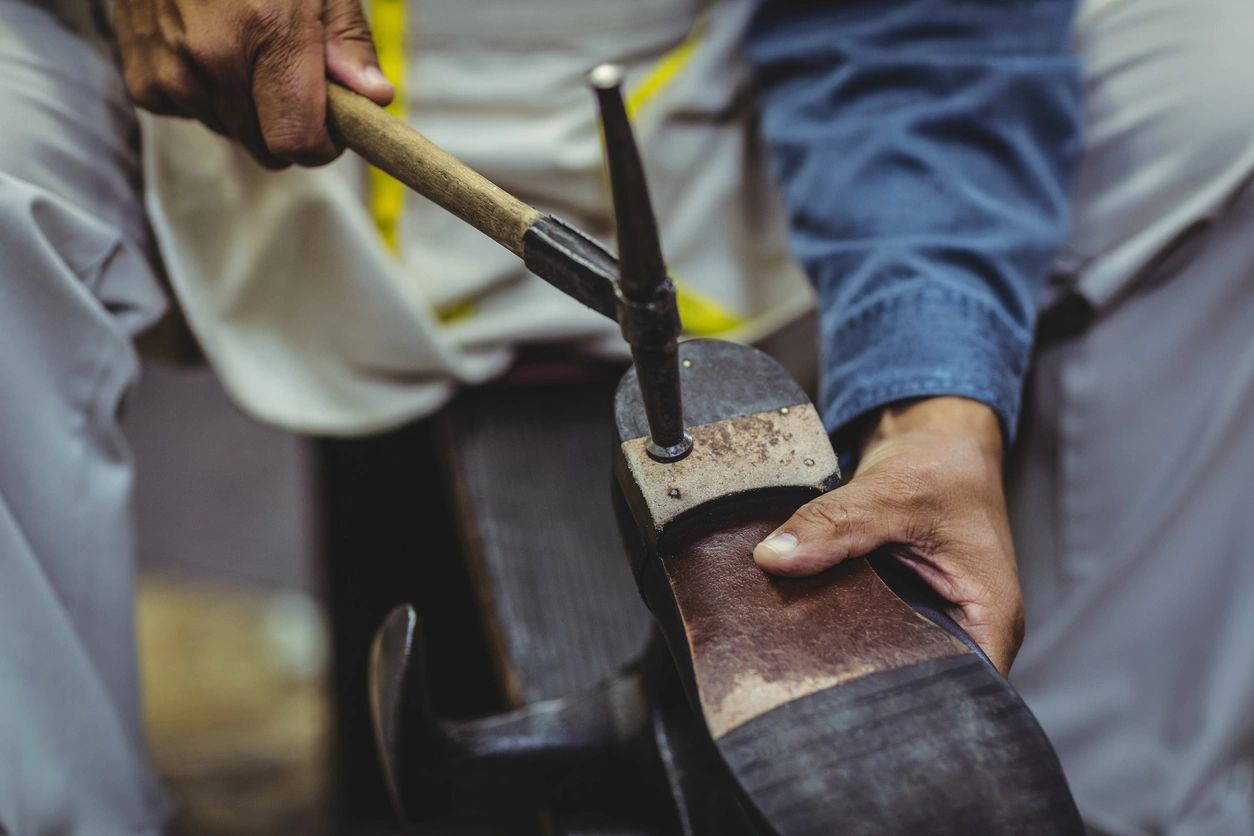This week’s Parsha introduces us to a unique Mitzvah, called Yibum. When a married man dies childless, his brother is commanded to marry his dead brother’s wife. This is considered to be a great kindness in order to perpetuate his brother’s family line. The child born will spiritually be considered the deceased man’s child. If the brother chooses not to marry her, she must undergo a process called Chalitzah, in which she removes his shoe and declares him someone who rejected a Mitzvah. Nowadays only Chalitzah is applicable.
The question begs, what does a shoe have to do with a brother rejecting kindness towards his dead brother? Why is a shoe necessary and a part of this process? Rav Yitzchok Fingerer explains: It is through the Mitzvah of Yibum that the brother of the deceased is supposed to fend for and provide for his dead brother’s wife (and future family); to take care of his brother’s family’s needs posthumously.
This is precisely what a shoe is all about. Every morning we say the daily blessing “She’asa li Kol Sorki” – “Hashem takes care of all our needs.” What does this refer to? Shoes! Why are shoes considered to be “all our needs”? The Avudraham explains that we say “She’asah li kol sarki” on shoes because one who is barefoot cannot properly move around to take care of his and his household’s needs. Therefore, his shoes are the key to providing everything.
That is why the Gemara (Shabbos 129) says that one must sell everything, even the support beams of one’s house to buy shoes. Therefore, when the living brother fails to fulfill his humanitarian task of taking care of his dead brother’s needs, the best instrument to use is the shoe, which symbolizes Hashem taking care of our needs. Perhaps this is why the special blessing recited upon performing Chalitzah invokes “following the laws of Avraham Avinu.”
What is the connection between Avraham and Chalitzah? Avraham was the paragon of Chesed, (kindness). Therefore, we remind the brother of the deceased that he should have chosen the path of his forbear Avraham and be a Baal Chesed, a performer of kindness, and chose to marry his sister-in-law and fend for their family. We learn from this mitzvah the importance of looking out for others. We learn that when we take care of others’ needs, Hashem takes care of our needs.
In his commentary on Beis Halevi on Ahavas Yisroel, Rav Dovid Sutton shlita writes a story told of two childhood friends. One of the friends became a spy, but one day he was caught and sentenced to death. As the executioner was preparing to hang the man, the man begged, “Please let me go back and say goodbye to my family!” Not trusting that he would come back, the executioner insisted that this man find himself a replacement to guarantee his return. If he did not come back, the guarantor will die instead of him.
Of course, when the man asked his old childhood friend to serve as his guarantor, the friend agreed. The day arrived on which the spy was supposed to return for his hanging but to everyone’s ultimate dismay, he was not back! The clock was moving faster and faster to the time of the hanging.
Suddenly to everyone’s surprise a carriage zoomed into the marketplace where the execution was to take place. The spy leaped out from the carriage, screaming, “Stop I’m back! Don’t kill my friend, I’m here!” So, the executioner removed the noose from the friend and began to place it on the neck of the spy. The guarantor then began to shout and cry out, “No, no hang me! Let my friend live!” Then the spy cried out, “No kill me!”
The king, who was watching the scene unfold, called the proceedings to a halt. The king summoned the two friends and praised them for their devotion to one another. He then offered to pardon the spy, on one condition: that they include him in their circle of relationship. Perhaps we can compare this story to the Torah idea expressed before; when we take care of others’ needs, Hashem, the king of all kings takes care of our needs!







